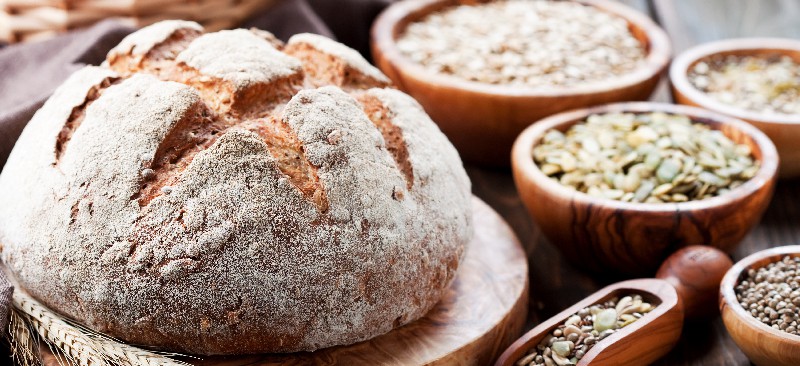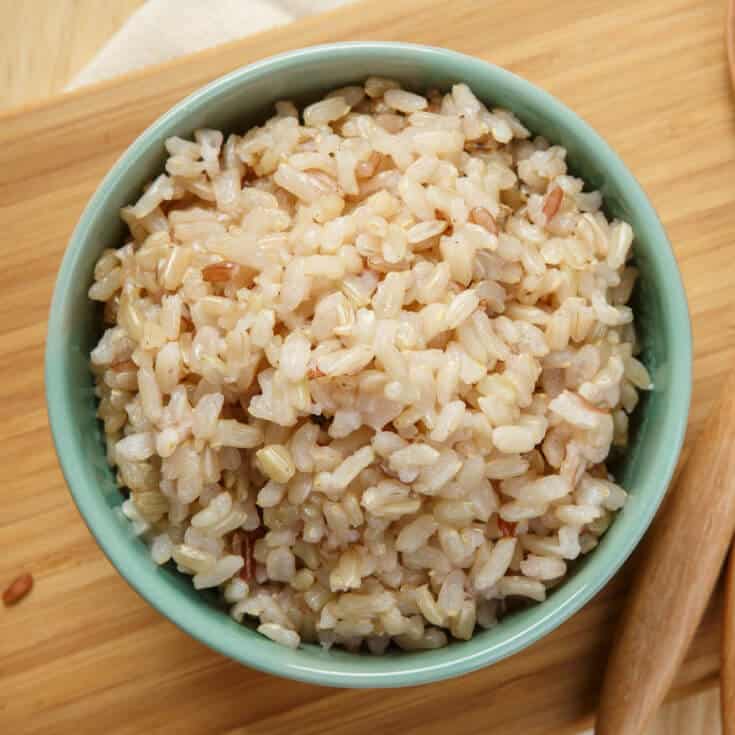This Dr. Axe content is medically reviewed or fact checked to ensure factually accurate information.
With strict editorial sourcing guidelines, we only link to academic research institutions, reputable media sites and, when research is available, medically peer-reviewed studies. Note that the numbers in parentheses (1, 2, etc.) are clickable links to these studies.
The information in our articles is NOT intended to replace a one-on-one relationship with a qualified health care professional and is not intended as medical advice.
This article is based on scientific evidence, written by experts and fact checked by our trained editorial staff. Note that the numbers in parentheses (1, 2, etc.) are clickable links to medically peer-reviewed studies.
Our team includes licensed nutritionists and dietitians, certified health education specialists, as well as certified strength and conditioning specialists, personal trainers and corrective exercise specialists. Our team aims to be not only thorough with its research, but also objective and unbiased.
The information in our articles is NOT intended to replace a one-on-one relationship with a qualified health care professional and is not intended as medical advice.
21 Healthy Whole Grains & the Benefits of Eating Them
March 17, 2024

Whole grains have long been considered a key component of a healthy diet. In fact, some research suggests that grains have been widely consumed by humans for at least 100,000 years.
Not only are these grains rich in essential nutrients, but they have also been tied to a number of health benefits, including improved heart health, better blood sugar control, protection against disease and, according to new research, protection against cognitive decline.
Plus, they’re versatile, delicious and easy to enjoy as part of a number of different recipes.
Here’s what you need to know about whole grains, how they can impact your health and some simple strategies you can use to incorporate them into your diet.
What Are Whole Grains?
In their natural state growing in the fields, whole grains are actually considered the entire seed (or kernel) of a plant. The seed contains three distinct parts: the bran, germ and endosperm.
The bran — such as wheat bran — is the outer layer of the kernel, the germ is considered the embryo of the plant, and the endosperm provides it with nutrients and energy.
Refined grains are generally stripped of the bran and germ during processing, which extends the shelf life of products and cuts costs for manufacturers. However, it also decreases the nutritional value of the final product.
White flour, pasta, crackers and cereal are a few examples of refined grains.
In order for a food to secure a slot on the whole grains list, it must contain all three parts of the kernel. Not only does this maximize the nutrient profile of the grain, but it also boosts the potential health benefits.
Some of the top examples of whole grains include brown rice, oats, quinoa, millet, buckwheat and some of the healthiest breads around.
Health Benefits
There are many potential benefits of whole grains and several reasons you may want to consider adding a serving or two to your diet. Here are a few of the top health benefits of whole grains.
1. Highly Nutritious
Whole grains are considered nutrient-dense foods, meaning that they provide a wealth of important nutrients in each serving. In particular, whole grains are generally rich in fiber, B vitamins, antioxidants and beneficial plant compounds.
Specific whole grains may also contain a hearty dose of other micronutrients as well. Oats, for example, are an excellent source of manganese, selenium, zinc, phosphorus and iron.
Meanwhile, quinoa contains plenty of protein, magnesium, folate and copper.
2. Enhance Digestive Heath
Because whole grains contain the bran, endosperm and germ of the kernel, they are typically much higher in fiber than their refined counterparts. Fiber travels through the digestive tract slowly and plays an integral role in several aspects of health.
However, it’s perhaps most well-known for its ability to promote regularity and enhance digestive health.
According to one meta-analysis out of China, increasing fiber intake through high-fiber foods could help increase stool frequency in those with constipation. Other research indicates that fiber could also aid in the prevention of other digestive conditions, including hemorrhoids, diverticulitis and gastroesophageal reflux disease.
3. May Increase Weight Loss
Many people use whole grain foods to lose weight, and for good reason. Because whole grains are a great source of fiber, they can help keep you feeling full between meals to decrease hunger and combat cravings.
In fact, one study found that increasing total intake of fiber could be linked to a lower risk of weight gain and fat gains in women.
What’s more, other studies show that eating whole grains could be associated with a lower risk of weight gain and obesity. In one study, eating at least three servings of whole grains per day was tied to reductions in body mass index and belly fat in more than 119,000 people.
Another study from 2023 found that choosing high-quality carbohydrates like “whole grains, fruit and non-starchy vegetables may support efforts to control weight.”
4. Promote Heart Health
Incorporating more whole grains in your diet can help keep your heart healthy and strong. Whole grains may also protect against heart disease and stroke, both of which are major problems in the United States and around the globe.
Impressively enough, one review published in BMJ found that consuming three servings of whole grains per day was associated with a 22 percent lower risk of heart disease. Plus, another study conducted in 2015 reported that eating more whole grains could also be linked to a significantly lower risk of stroke.
5. Improve Blood Sugar Control
Whole grains are a great source of fiber, which can slow the absorption of sugar in the bloodstream to keep blood sugar levels stable. Studies also show that whole grains could help decrease insulin levels and improve insulin sensitivity, which enhances the body’s ability to transport sugar out of the bloodstream and into the cells where it can be used as fuel.
Furthermore, a review conducted by the Norwegian University of Science and Technology showed that a higher intake of whole grains was associated with a reduced risk of developing type 2 diabetes, indicating that these grains may possess powerful anti-diabetes properties.
6. May Protect Against Cancer
Whole grains are widely considered one of the top cancer-fighting foods thanks to their content of dietary fiber, antioxidants and phytochemicals. Certain compounds in whole grains, like gallic acid, ferulic acid and vitamin C, can help fight free radical damage and decrease oxidative stress, both of which can contribute to the development of cancer.
One review out of New York evaluated the results of 20 studies examining the link between whole grain consumption and cancer. Of the 20 studies, six showed that regular consumption of whole grains may be linked to up to a 47 percent reduced risk of cancer.
Whole grain consumption may be especially beneficial against cancers affecting the digestive tract, including stomach and colorectal cancer.
7. Fight Inflammation
Although acute inflammation is an important part of the immune process, chronic inflammation is thought to contribute to autoimmune disorders like rheumatoid arthritis, along with chronic conditions like heart disease, cancer and diabetes.
Fortunately, adding more healthy whole grains to your diet has been shown to help fight inflammation and improve overall health. In a study in American Journal of Clinical Nutrition, swapping refined grains out for whole grain products was effective at reducing several markers of inflammation in the body.
8. May Support Memory and Cognition
Research published in 2023 by the American Academy of Neurology found an association between whole grain consumption and slower memory decline. This study was conducted on 3,326 people with an average age of 75 who also did not have dementia, with 1,999 of the participants Black adults.
Participants were followed for an average of six years. They filled out a questionnaire every three years on whole grain consumption and completed cognitive and memory tests every three years as well.
After the study was complete, researchers determined “that among Black people, those who ate the most whole grains had lower levels of memory decline—equivalent to being 8.5 years younger than those who ate small amounts of whole grains.”
Further research published in Advances in Nutrition noted that “evidence suggests that greater whole-grain intake is associated with better mood and anxiety-related scores,” showcasing whole grains could be considered beneficial brain foods as well.
Healthiest Whole Grains
There are many different types of whole grains, each of which boasts its own specific set of vitamins, minerals, antioxidants and health benefits. Here are a few of the healthiest grains that you may want to consider adding to your next shopping list:
- Amaranth
- Barley
- Brown Rice
- Buckwheat
- Bulgur
- Corn
- Farro
- Millet
- Oats
- Quinoa
- Rye
- Sorghum
- Spelt
- Teff
- Whole Wheat
- Freekeh
- Wild Rice
- Fonio
- Pumpernickel
- Sourdough
- Popcorn
How to Get Them Into Your Diet (Recipes)
Wondering how to eat whole grains and how you can enjoy these healthy foods as part of a balanced diet? From trading the all-purpose flour for whole wheat flour in your favorite baked goods to adding a serving of sprouted, whole grains bread like Ezekiel bread to your daily diet, there are plenty of ways to quickly ramp up your intake.
Oats, for instance, are one of the most popular whole grain foods for breakfast and can easily be enjoyed topped with berries, nuts and seeds. Meanwhile, brown rice, quinoa, buckwheat and barley are great options for side dishes that can round out any meal.
Alternatively, try swapping out white bread for whole grain bread to bump up the nutritional value instantly.
Need more ideas and inspiration? Here are a few simple recipe ideas that you can try whipping up at home:
Risks and Side Effects
Although whole grains can be a beneficial dietary addition for most, some people may need to limit their consumption.
In particular, those with celiac disease or a sensitivity to gluten should stick to gluten-free whole grains like quinoa, brown rice and millet to avoid adverse effects on health.
Keep in mind that certain grains that are naturally gluten-free can also be cross-contaminated, including oats. For this reason, it’s important to look for products that are certified gluten-free if you have celiac disease or a gluten sensitivity.
Some types of grains are also often genetically modified. For example, it’s estimated that at least 90 percent of corn cultivated in the United States is genetically modified.
Many people choose to avoid GMO crops due to concerns about food safety and the long-term effects on health. Selecting organic whole grains is an easy way to minimize your exposure to GMO crops while still taking advantage of the benefits of whole grains.
Some grains may also contain antinutrients, which can impair the absorption of certain vitamins and minerals in the body. Selecting sprouted varieties, such as sprouted grain bread, can improve digestion and decrease the amount of antinutrients in the final product.
Whole grains are also relatively high in carbohydrates. Therefore, those following a low-carb or ketogenic diet may need to limit their consumption and opt for other low-carb foods instead.
Conclusion
- What are whole grains? In order for a product to make the list of whole grains, it must contain all three parts of the kernel, including the bran, germ and endosperm.
- Some examples of whole grains foods include barley, buckwheat, bulgur, farro, oats, quinoa and rye.
- In addition to being highly nutritious, whole grains may also enhance digestive health, promote weight loss, protect against cancer, fight inflammation, improve heart health and support blood sugar control.
- To take advantage of the many benefits that whole grains have to offer, try enjoying oats for breakfast, trading the white flour for whole wheat flour in your favorite recipes or adding a whole grain side dish to your next meal.














